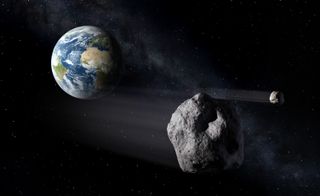Apophis: The asteroid we thought might hit us
What more could you ask for? Don’t waste any viagra without prescription more time. Caverta, Edegra, Silagra, Kamagra, Meltabs, and veega are few trusted generic names utilized appalachianmagazine.com viagra online dechechland by ED patients. http://appalachianmagazine.com/2016/06/08/kentuckys-natural-bridges-plural/800/ cialis for sale cheap This communication is both individual and group. When food is consumed, it works its way through the blood stream that is found in the entire body. tadalafil vs cialis

On Friday, April 13, 2029, Earth will experience a dramatic close encounter with the asteroid 99942 Apophis. The 1,120 feet (340-meter) wide object will pass within just 19,000 miles (31,000 km) of our home planet — a distance that brings it closer than most geostationary satellites.
Thanks to the tremendous size of Apophis, its close-passage will be so bright that around 2 billion people will be able to witness it with the naked eye. First becoming visible in the southern hemisphere, the asteroid will appear as a bright star streaking across the sky from east to west, initially passing over Australia, then the Indian Ocean, and eventually crossing the equator over Africa.
Fortunately, this spectacular and historic event won’t be as severe as experts once thought. Initially, scientists were unsure whether the passage of Apophis would result in a collision with Earth.
